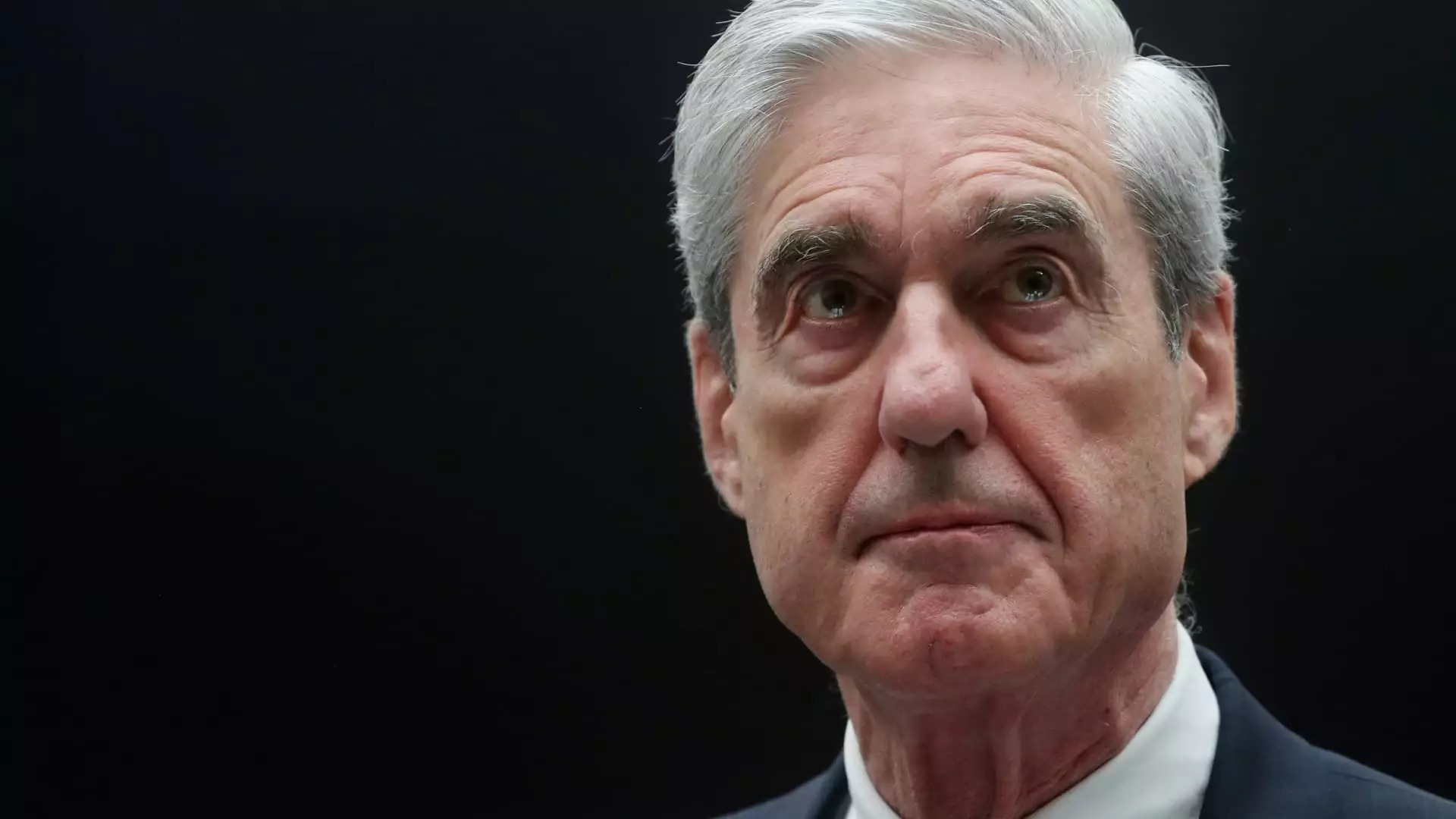The recent firing of Peter Carr, a former spokesman for high-profile special counsels Robert Mueller and Jack Smith, epitomizes the turbulent intersection of politics and the justice system in contemporary America. As an employee of the Department of Justice (DOJ) since 2007, Carr became a vital conduit between the investigations into Donald Trump’s conduct and the public. His abrupt dismissal by Deputy Attorney General Todd Blanche—a figure previously linked to criminal proceedings against Trump—raises profound questions about the integrity of governmental institutions and the distance from which they operate.
Using legal terminology as a shield and political maneuvering as a weapon, the act of sacking Carr resonates as a chilling reminder of how the apparatus of justice can be manipulated. This move serves not only as a personal affront to Carr, who crafted his career in a delicate socio-legal atmosphere, but also as a systemic warning that the flame of justice is flickering, threatened by the gales of political expediency. One cannot help but view this incident through a lens of skepticism. Is efficiency now prioritized over integrity within the corridors of power?
The Shadows of Past Investigations
The Mueller inquiry into allegations of Russian interference in the 2016 election brought forth a plethora of complexities regarding Trump’s actions. The investigation, mired in controversy, charged nearly three dozen individuals but ultimately found itself unable to implicate Trump directly in any illegal conspiracy. Mueller’s ambivalence—his inability to exonerate while refusing to charge—left a haunting ambiguity over what true justice could invoke in the realm of politics.
Mueller’s assertion that it was “unconstitutional” to charge a sitting president might echo the ongoing debates about the limits of executive power. However, such assertions do not grant a dwindling public confidence in the ultimate accountability of those in power. The relentless questions posed during these investigations only seem to multiply after Carr’s firing. With so much at stake, does this firing signal a preemptive strike against any fallout from the lingering controversies? Does it portend an environment where whistleblower culture is stifled, and only the narratives supportive of the administration survive?
The Pandora’s Box of Political Repercussions
As the DOJ appears to shrink under the weight of Trump’s previous term—and the looming specter of a potential second—one cannot overlook how intertwined these legal battles and political ambitions become. Trump’s history of retaining classified documents and attempting to overturn his electoral defeat alludes to a deeper malaise afflicting American governance, where the principle of accountability is threatened by the trappings of power.
The stakes rose significantly with Smith’s criminal charges against Trump, an act that seemed to finally emerge from the shadows of political retribution. Yet, similar to a boomerang, the effects of these prosecutions are becoming increasingly ambiguous when entangled with DOJ’s own policies. The support for actions taken against a former president is often confused by declarations of inconsistency with institutional rules, as seen with the dismissal of charges after the man returned to political office.
This state of affairs gives rise to insidious questions: Is the DOJ now a functional arm of partisan politics? With a former spokesman being unceremoniously ousted, do we risk normalizing the politicization of legal entities whose very essence is to uphold the rule of law? The balance of power should not be so precariously tilted that it inadvertently devalues the foundation of justice itself.
The Moral Compass in Uncertain Waters
In an era dominated by political tribalism and skepticism towards government institutions, the events surrounding Carr’s firing signal an urgent need for more substantial public dialogue about the role of objective justice. As citizens, we must ask ourselves: Are we content with the degree of accountability exhibited by those in positions of power, succeeding or failing to uphold the rule of law?
The heart of liberalism hinges on the principles of accountability, equality, and justice for all. Any erosion of these principles could foster an atmosphere ripe for exploitation. The narrative surrounding Carr’s firing is not merely an isolated incident, but rather a suffocating layer in a broader, more complex societal conflict. The implications resonate far beyond any one individual, marking a pivotal juncture in our quest for a just society.


Leave a Reply